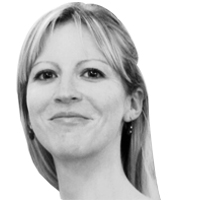U.S. News
Craig Fritz/The New York Times
Valerie Plame on Love in the CIA and Her Nuclear Proliferation Nightmare
NOM DE PLAME
Valerie Plame talks to The Daily Beast about her CIA thriller 'Blowback,' dating in the CIA, and which country's nukes keep her up at night.

Trending Now





